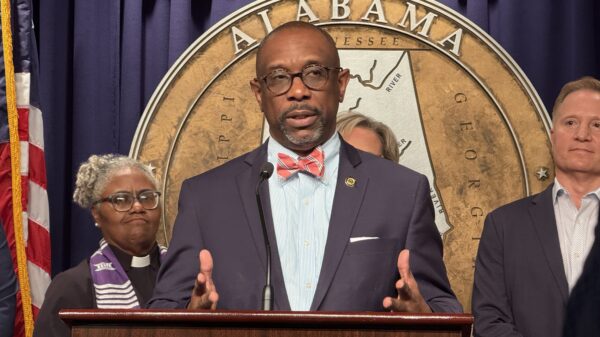Wednesday, Congressman Gary Palmer (R-Hoover) voted “no” on the bipartisan Consolidated Appropriations Act (H.R. 1158) and the Further Consolidated Appropriations Act (H.R. 1865) citing concerns about growing the national debt.
These two “minibus” bills authorize continued funding of the federal government through fiscal year 2020, once the current funding resolution expired on December 20. Both passed despite Palmer’s no vote.
“Combined, H.R. 1158 and H.R. 1865 add up to a massive 2,313 pages and $1.4 trillion dollars in spending, adding even more to our deficit for this fiscal year and to our long-term debt,” Palmer said in a statement. “These two bills were released less than 24 hours before Members were expected to vote on them, making it impossible to review the bills beforehand.”
“It is always difficult to vote against appropriations for our military,” Palmer said. “I have long supported increased and robust funding for our military. There is no question that we must make certain that our military is adequately funded both for its present missions and the missions of the future. But the reckless and irresponsible course that we are on in regard to spending will ultimately have a devastating impact on our ability to provide for our national defense. Regardless of which party is the majority, we must find a way to get control of our spending, set priorities for domestic programs and our military, and offer spending bills that fund those priorities and that will set us on a course to fiscal stability.”
“I remain committed to finding solutions to rebuilding our military after years of neglect and to meeting the threats of the future, but these spending bills are not the way to get that job done,” Palmer added. “It’s for these reasons that I voted ‘no’ today on H.R. 1158 and H.R. 1865.”
According to the U.S. treasury, the national debt is $23,146 billion. Despite a booming economy, rising wages, and the lowest unemployment since the 1960s the federal budget deficit has ballooned to over $1,043 trillion. The federal government is spending $4,548 billion a year; but is only taking in $3,505 billion annually. The largest source of federal revenue is the income tax, which brings in just $1,722 billion, payroll taxes which only brings in $1,254 billion, the corporate income tax $232 billion, excise taxes $92 billion, tariffs $69 billion, Federal Reserve remittances $49 billion, and estate and gift taxes $15 billion. The largest drivers of the deficit are Medicare and Medicaid $1,260 billion, Social Security $1,052 billion, Defense/war $677 billion, interest on the growing debt $376 billion, income security programs $301 billion, federal pensions $289 billion, and food/agricultural programs $152 billion. U.S. Debtclock.org estimates that the federal government loses $135 billion in waste, fraud, and abuse. $87 billion is spent on classified programs.
Gary Palmer is a member of the conservative House Freedom Caucus and represents Alabama’s Sixth Congressional District.


















































